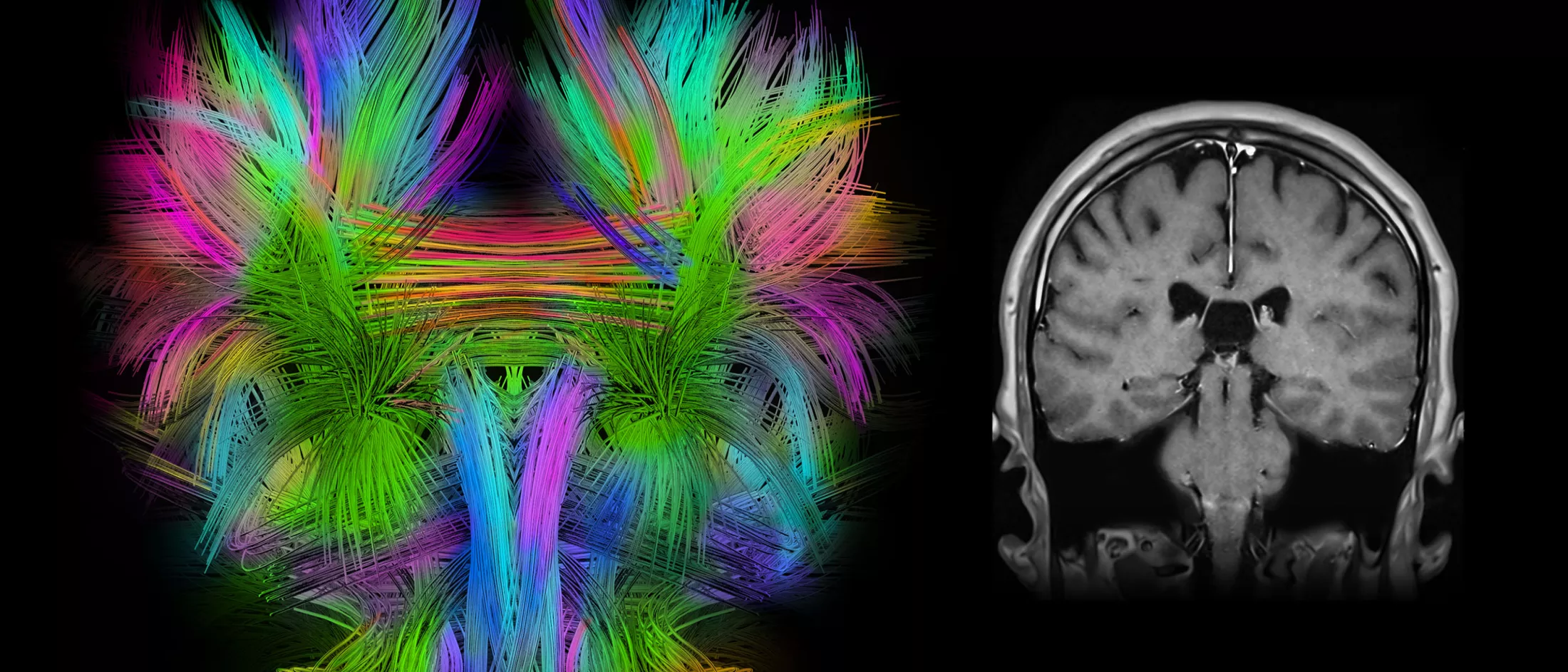About Disorders of the Brain
Some genetic disorders of the brain are caused by changes that are inherited from parents or ancestors and are present in an individual at birth. Other diseases are caused by acquired changes in genes that occur during a person’s life. Certain rare genetic syndromes may be associated with intellectual disability, a subgroup of neurodevelopmental disorders characterized by impaired intellectual functioning and deficits in adaptive behaviors with an onset of deficits during the developmental period. The genetic abnormalities that may give rise to intellectual disability can be due to a change in the DNA sequence of a gene, a copy number variation or a chromosomal abnormality, including an inborn error of metabolism (such as in Niemann-Pick disease), a neurodevelopmental defect (such as in Fragile X syndrome) or neurodegeneration (such as in Rett syndrome).
Genetic factors have also been found to play an essential role in the development of certain types of rare seizure and epilepsy syndromes. Depending on the gene abnormality, including changes in synaptic and ion channel genes, multiple different types of seizures can be seen. They can begin during infancy and be associated with neurodevelopmental delays and neurologic disability in childhood as well as persistent motor and cognitive dysfunction during adulthood, such as in Dravet Syndrome.
Certain genetic syndromes can be associated with various genetically driven structural brain abnormalities, which can lead to a variety of brain malformations, such as the absence or incomplete development of the brain gyri with microcephaly (as seen with classic lissencephaly or Miller-Dieker syndrome) or abnormal neuronal migration (as seen with periventricular nodular heterotopia). They can also be associated with other abnormalities, including seizures and intellectual disability.
Advanced Screening, Diagnostics & Treatments
Our multidisciplinary team of world-renowned experts specializes in the prevention, early detection and nonsurgical and surgical treatment of rare disorders of the brain. We offer comprehensive, personalized care focused on preserving neurologic function and optimizing health and quality of life. We use the latest and most advanced diagnostics, including massively parallel sequencing, advanced cytogenetic analysis, electroencephalography (EEG) and neuroimaging techniques, as well as state-of-the-art facilities for long-term epilepsy monitoring, to facilitate precision medicine treatment plans.
We’re ranked in the top 1% of all hospitals in the nation for neurology and neurosurgery, according to U.S. News & World Report, and we are one of the first Comprehensive Level 4 Epilepsy Centers, the highest level designation from the National Association of Epilepsy Centers.

Learn More About Disorders of the Brain
Receiving a diagnosis of a rare disorder of the brain, or being at risk for or suspected of having one, can feel overwhelming, but learning more about the diagnosis can help you navigate treatment and care. Visit the links below to learn more about some of the different types of rare disorders, their causes, and associated symptoms as well as screening and treatment options. This list includes a selection of rare disorders of the brain. Schedule a consultation with us for diagnosis and treatment options for these or any other rare conditions.
Intellectual Disability
Seizure Syndromes
Structural Brain Abnormalities +/- Seizures
Center for Rett Syndrome
CERC Children's Evaluation & Rehabilitation Center
Comprehensive Epilepsy Center
Neurocutaneous Center
Neuromuscular Unit of Pediatric Neurology
Pediatric Medical Genetics Clinic
Tuberous Sclerosis Complex Clinic
Image courtesy Positive Exposure in collaboration with Under the Same Sun.



